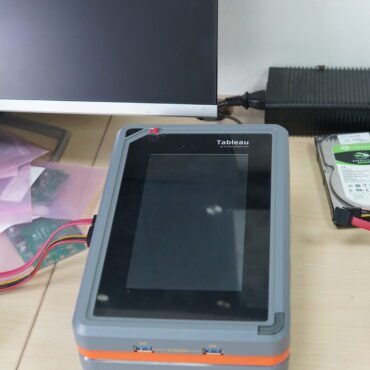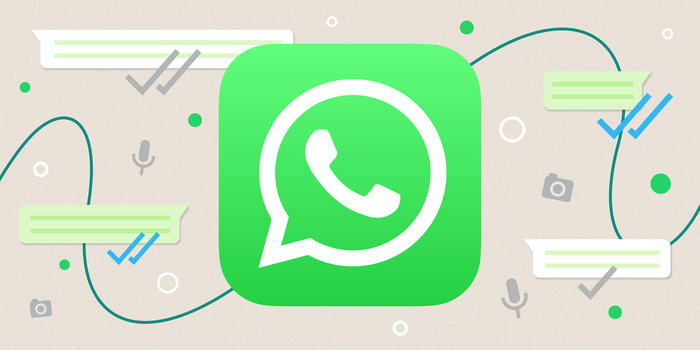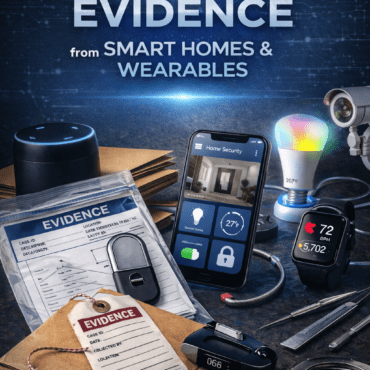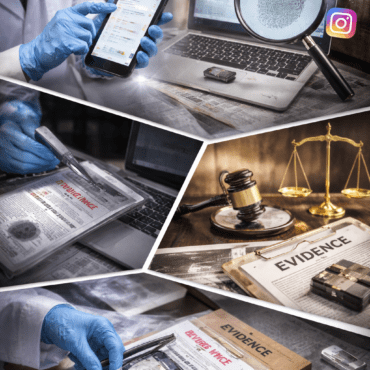
Forensic Imager TX1 Comprehensive Guide
Forensic Imager TX1: Comprehensive Guide In the digital forensic world, accurate and reliable acquisition of data is the foundation of any investigation. Forensic imagers play a crucial role in this ...


Blog + Data Recovery Ayushi Agrawal todaySeptember 2, 2025

WhatsApp is one of the most popular messaging apps worldwide, with billions of users relying on it for personal and professional communication. From texts and images to videos, call logs, and documents, WhatsApp stores vital data that often becomes crucial for individuals, businesses, and even legal investigations.
But what happens when this data is lost or deleted? WhatsApp data recovery can be a complex process due to encryption, device limitations, and storage challenges. Whether you’ve lost chats accidentally or need forensic recovery for a court case, the recovery methods vary depending on the situation.
In this blog, we’ll explore the common challenges in recovering WhatsApp data and the different methods used across scenarios and cases.
End-to-End Encryption
WhatsApp protects chats with strong end-to-end encryption. This makes recovery difficult without the right keys or specialised forensic tools.
Deleted Messages & Media
Once chats or media are deleted, they can be quickly overwritten by new data. Timing is critical in recovery attempts.
Cloud Backup Access
WhatsApp backups are stored on Google Drive (Android) and iCloud (iOS). Access requires login credentials, and sometimes encrypted backups add extra hurdles.
Different Operating Systems
Data recovery differs between Android and iOS. Android allows more flexibility, while iOS has tighter restrictions due to Apple’s security ecosystem.
Damaged or Inaccessible Devices
Hardware failures, water damage, or broken screens may require advanced forensic recovery methods like chip-off extraction or JTAG analysis.
Legal and Privacy Restrictions
Forensic WhatsApp recovery in criminal cases must follow strict legal procedures to ensure evidence is admissible in court.
Method: If chats or media were recently deleted, recovery can often be done via WhatsApp’s built-in local backup (for Android) or iCloud/Google Drive backup.
Forensic Approach: Tools like UFED, XRY, or Oxygen Forensic Detective can scan the device storage to retrieve deleted SQLite database records before they are overwritten.
Method: Recovering WhatsApp data usually depends on the last available backup in Google Drive or iCloud.
Forensic Approach: Advanced recovery tools can sometimes rebuild data from remnants in device memory or storage dumps, even if the device has been reset.
Method: Standard backup recovery won’t work if the device was never synced. In such cases, chip-off forensic extraction or JTAG analysis can be used to directly access the raw data stored in the memory chip.
Forensic Approach: Data carving techniques allow specialists to reconstruct fragmented WhatsApp databases.
Method: If WhatsApp data is lost or tampered with due to malware, recovery may involve isolating malicious code and restoring data from secured backups.
Forensic Approach: Analysts check WhatsApp log files, encrypted backups, and residual files in system partitions to reconstruct original communication.
Method: Local device recovery becomes the only option. On Android, old database files (msgstore.db.crypt12, etc.) might still exist in internal storage. On iOS, partial recovery is possible via iTunes backups if they exist.
Forensic Approach: File system extraction and forensic imaging are used to analyze hidden or deleted records.
Method: Data must be recovered in a legally admissible manner, ensuring no tampering. This often requires certified forensic tools that maintain chain of custody and generate legally valid reports.
Forensic Approach: Examiners may use industry-standard tools (Cellebrite, Magnet AXIOM, Oxygen) to extract, preserve, and document WhatsApp communications for use as digital evidence.
Act fast—delayed recovery reduces success rates.
Stop using the device after data loss to avoid overwriting deleted chats.
Always rely on certified forensic experts instead of unreliable recovery apps.
In legal cases, ensure proper documentation and chain of custody.
Enable regular cloud backups for easier recovery.
Recovering WhatsApp data is possible, but the method depends on the scenario—from simple accidental deletions to complex forensic investigations. While cloud backups can help in common cases, advanced forensic recovery is often required when dealing with damaged devices, deleted databases, or legal disputes.
For individuals, WhatsApp recovery ensures access to valuable conversations and media. For investigators, it can uncover critical evidence in digital crime cases. Either way, professional WhatsApp data recovery services offer the highest chances of success while ensuring data integrity and privacy.
Written by: Ayushi Agrawal

Forensic Tool Omprakash Singh
Forensic Imager TX1: Comprehensive Guide In the digital forensic world, accurate and reliable acquisition of data is the foundation of any investigation. Forensic imagers play a crucial role in this ...


Copyright 2016-2025 all rights reserved by Hawk Eye Forensic.
Post comments (0)